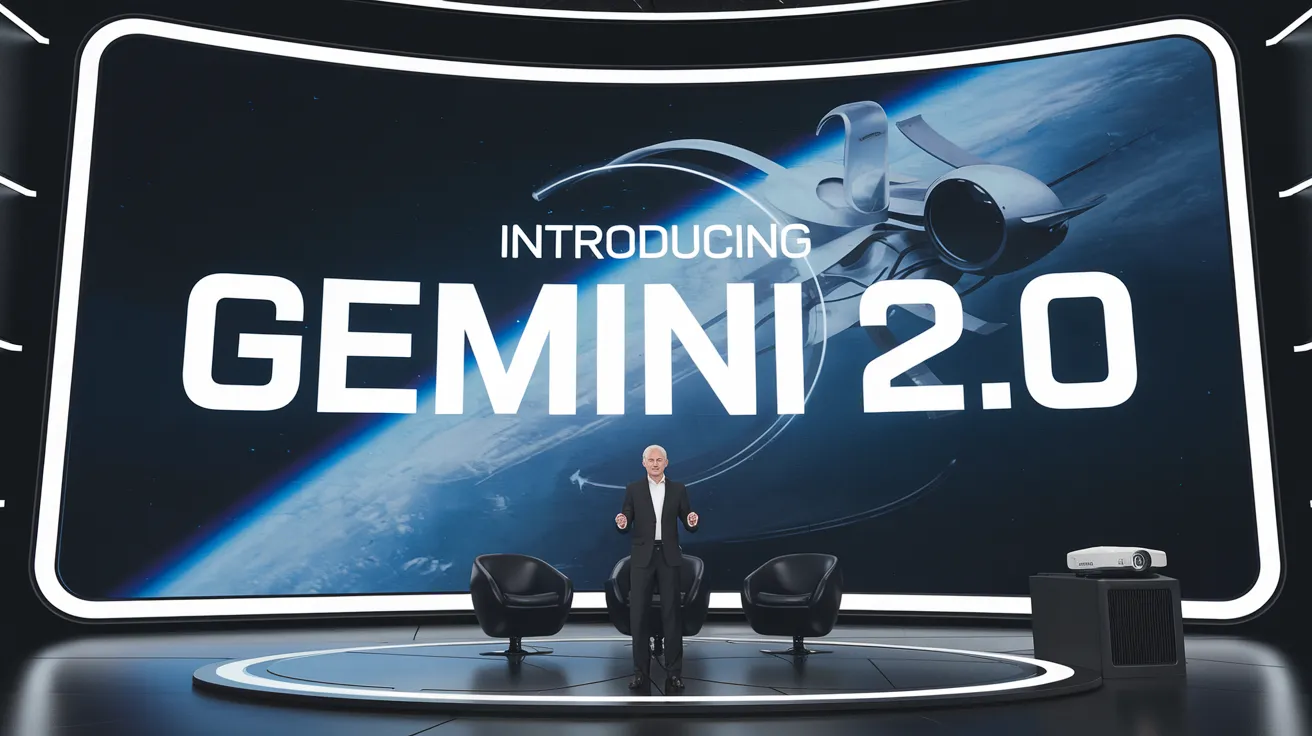Gemini 2.0: Google DeepMind’s New AI Model

Today marks the launch of Gemini 2.0, a significant advancement in the artificial intelligence landscape from Google and Alphabet. The introduction of this new AI model is rooted in a vision to better organize and utilize information, echoing the foundational goal that has driven the company for over 26 years.
A Leap Forward from Gemini 1.0
With Gemini 1.0 having laid the groundwork for a natively multimodal AI experience—capable of handling text, video, images, audio, and code—Gemini 2.0 takes this concept further by enhancing its multimodal capabilities. This upgraded model is set to improve interactions across various platforms, making AI significantly more accessible and beneficial for users.
Sundar Pichai, CEO of Google, highlighted the transformative journey of the Gemini series, stating that while Gemini 1.0 focused on organizing information, Gemini 2.0 aims to make that information even more useful through sophisticated functionalities.
New Features and Capabilities of Gemini 2.0
Gemini 2.0 incorporates advanced features such as:
- Native Image and Audio Output: Users can now expect enriched interactions with natively generated images alongside text, as well as multilingual text-to-speech capabilities.
- Enhanced Agentic Functions: The model is designed to understand its environment, think ahead, and take actions with user supervision, positioning itself as a more proactive AI assistant.
- Research Assistant Feature: An experimental model called Deep Research leverages advanced reasoning to assist users in exploring complex topics and compiling informative reports.
Integrating AI Across Google Products
Pichai emphasizes the profound impact AI is having on Google’s products, particularly in Search, where AI Overviews have become a staple feature for users. The enhanced reasoning capabilities of Gemini 2.0 will also be applied to tackle more complex inquiries, incorporating advanced math and multimodal queries.
As Gemini 2.0 becomes available to developers and trusted testers, Google aims to integrate these advancements seamlessly into other products, including the Gemini app, facilitating a more dynamic user experience.
Exploring Agency in AI
The team led by Demis Hassabis and Koray Kavukcuoglu at Google DeepMind is focusing on what they term “agentic experiences”—AI capabilities that facilitate problem-solving and task completion with minimal user input. Projects like Astra and Mariner exemplify this mission, enabling practical applications of AI in everyday situations including browsing and task automation.
Additionally, Project Jules aims to assist developers directly within Their workflows on platforms like GitHub, marking an intersection of AI and software development that promises to streamline coding tasks significantly.
Ensuring Safety and Responsibility
As Google DeepMind progresses into the era of Gemini 2.0, the emphasis on responsible AI development remains paramount. The company plans a cautious approach, enhancing safety measures and evaluating risks throughout the deployment process. Features like enhanced memory control, user permissions for sensitive actions in environment interactions, and built-in privacy controls aim to foster safe user interactions.
Pichai and his team acknowledge the critical importance of continuing to prioritize ethical considerations, ensuring that these sophisticated AI models do not unintentionally compromise user safety or privacy.
The Future of AI with Gemini 2.0
The launch of Gemini 2.0 heralds a new chapter in AI interaction, aiming to bridge the gap between human necessities and technological capabilities. As development continues, both Sundar Pichai and his team express enthusiasm for the possibilities of Gemini 2.0, eagerly anticipating the ways AI can enhance day-to-day tasks and ultimately evolve towards artificial general intelligence (AGI).